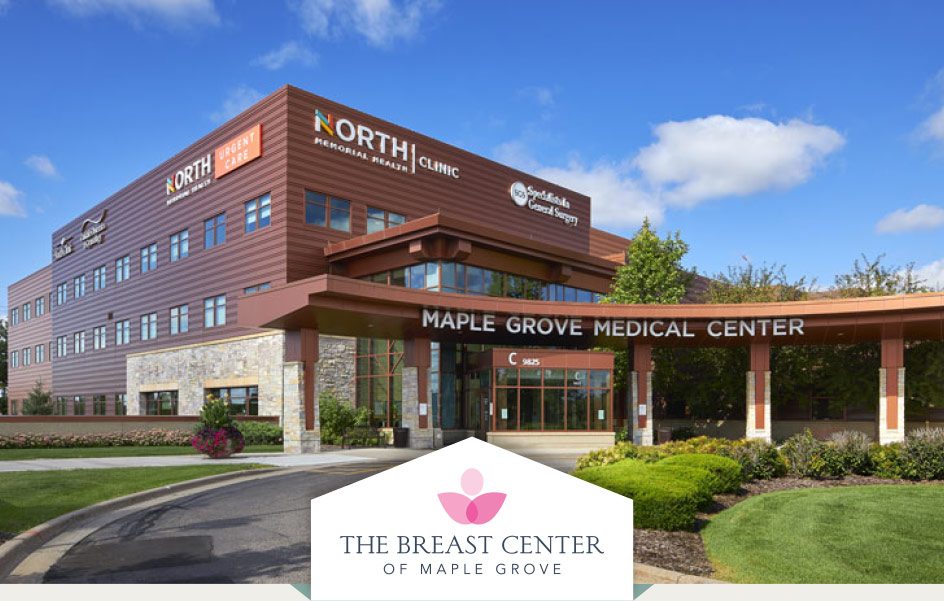Breast Pain
Experiencing a shooting pain in your breast may come as a surprise. If you’re unsure why you’re feeling this discomfort, you might wonder if something is happening underneath the surface.
At The Breast Center of Maple Grove, our mission is to help empower women to be proactive in their health and wellness journeys. We achieve this through our comprehensive screening and diagnostic imaging services, as well as our vast library of educational resources.
We encourage everyone to use and share these resources with others to help stay informed and get the answers to the questions you have about breast health.
A few questions we often receive from our patients surrounds the issue of breast pain:
- Why are my breasts sore when I wake up?
- Why is there a sharp pain in my right breast that comes and goes?
- Why do my breasts hurt after my period?
Let’s address each question by first defining what we mean by “breast pain.”
Breast pain includes any discomfort or tenderness in the breast or underarm region. It is often categorized as cyclic, which is related to the menstrual cycle, or noncyclic, which is unrelated to the menstrual cycle.
What Causes Breast Pain
If you’re currently experiencing breast pain, you may be nervous about the potential diagnosis. It may ease any anxiety you’re feeling to know that breast pain is rarely a symptom of breast cancer. However, it is a common symptom of many benign breast conditions.
Let’s review a few.
Fluctuating hormone levels
Fluctuating hormone levels are common among girls going through puberty, women before and during menstruation, and women going through menopause.
Pregnancy
Certain hormones can increase dramatically during pregnancy, especially during the first trimester. This may cause breast pain and tenderness.
Mastitis
Women who are lactating may be diagnosed with mastitis—a condition in which a milk duct may not drain properly and becomes infected.
Fibrocystic breast tissue
A very common condition, Fibrocystic breast disease typically affects women between the ages of 20-45. Fibrocystic breasts tend to be very sensitive to hormone changes associated with menstruation. They often feels painful, full, or heavy right before menstruation and then return to normal afterwards.
Medication
Certain medications may cause breast pain or tenderness.
Breast Pain After Your Period
For some women, the pain you experience in your breast is related to menstruation, especially if it only occurs at certain times of the month, usually a few days before your cycle begins. In others, the pain occurs more randomly.
Breast pain is most common in younger women who have not yet gone through menopause. In most cases, breast pain resolves itself. If it continues, however, your doctor may adjust any hormonal birth control you’re taking. He or she may also recommend over-the-counter pain medications like aspirin or ibuprofen to help you find relief.
It’s a good idea to keep track of your level of breast pain, and any other symptoms you may have—even if they seem unrelated. Keep track of your menstrual cycle, as well.
Should I Be Concerned?
Remember, while breast pain can be alarming (and uncomfortable), it’s usually not an indicator of breast cancer.
If you experience ongoing pain, or if your pain seems to be getting worse, it might be time to schedule a visit with your doctor for a breast exam. The sooner your doctor can identify the cause of the pain, the sooner you can receive treatment and start enjoying relief again.
It’s important to understand that when a doctor can diagnose a condition early, the treatment is traditionally less invasive and more effective.
Therefore, if you are feeling nervous about finding out what is causing your breast pain, remember that your doctor is there to work with you to find the best solution, so you can get back to feeling like your best self again.
The more proactive you are, the better the outcome.
Diagnosing Breast Pain
If necessary, your doctor may recommend a mammogram, ultrasound, or biopsy in order to investigate and rule out any serious conditions related to your pain.
- Mammogram – A mammogram helps physicians see the breast tissue in the area of the breast pain.
- Ultrasound – If a mass is present on a mammogram, an ultrasound may be given next to allow doctors to see if the mass is fluid-filled or solid. This will allow your doctor to determine the appropriate next step of treatment.
- Biopsy – A biopsy is also typically performed following a mammogram or ultrasound exam to further evaluate a lump or other suspicious area. During a biopsy, a radiologist will remove a small sample of breast tissue for further testing.
I Have Breast Pain. Now What?
If you are experiencing breast pain, talk to your doctor. Keep a record of your symptoms and whether they get better or worse at any time.
During your appointment, your doctor will likely conduct a clinical breast exam. He or she will also check your heart, lungs, chest and abdomen to see if the breast pain could be connected to another condition. If a lump is felt during the breast exam, your doctor may refer you for an imaging exam.
We make it fast and easy to schedule your exam at our comfortable, state-of-the-art facility. From our caring, knowledgeable team who are here to answer your questions and help you feel respected and empowered to our same-day appointments and diagnostic results, we are here to serve and support you throughout your journey.
Schedule Your Appointment Today
To make an appointment, please contact us by phone at 763-398-6370 or fill out our online form, and a member of our team will get right back to you. We also offer convenient walk-ins at our location, so you can get the support you need on your schedule!

